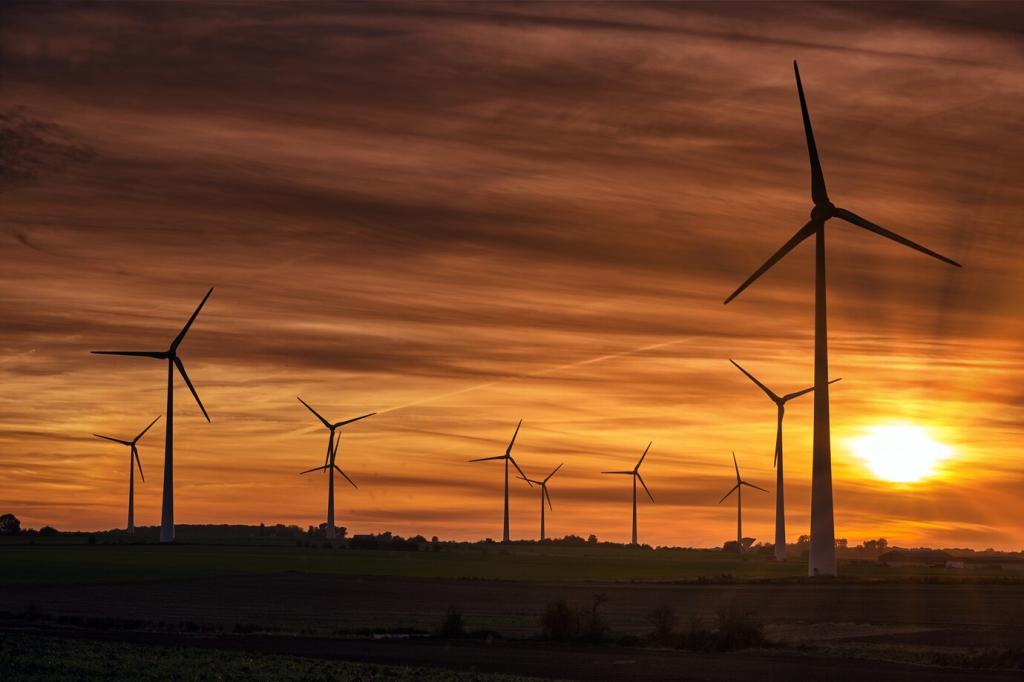Sustainable Living Through AI
Sustainable living has become an imperative in our rapidly changing world. Artificial intelligence (AI) offers innovative solutions for individuals, communities, and businesses striving to live in harmony with the environment. By harnessing AI technologies, we can optimize resource use, reduce waste, and make informed decisions that promote ecological well-being. This page explores how AI is reshaping sustainable living practices, making a greener future accessible and achievable for all.
Harnessing AI for Smart Resource Management

Optimizing Water Usage
Artificial intelligence facilitates more efficient water management by monitoring consumption patterns, predicting shortages, and automating irrigation systems. Through sensors and data analysis, AI can determine the optimal moments for watering crops or supplying water in urban settings, preventing both overuse and shortages. In agriculture, AI-driven systems reduce waste by targeting water delivery based on real-time soil and weather data. In cities, smart meters analyzed by AI detect leaks and inefficiencies in municipal water supplies, enabling fast responses and conservation. These precise interventions ensure that water, one of our most precious resources, is used wisely and sustainably.

Energy Efficiency Through Automation
AI-driven automation systems are transforming how energy is consumed in homes, businesses, and entire cities. By learning occupants’ habits, AI can intelligently control heating, cooling, and lighting, reducing unnecessary power usage without sacrificing comfort. In smart grids, AI predicts demand patterns and optimizes the distribution of renewable energy sources, minimizing waste and lowering carbon emissions. Such technologies make it easier for individuals and enterprises to track their consumption, understand their environmental impact, and take actionable steps to increase their energy efficiency. Ultimately, AI helps make renewable energy sources and energy savings more accessible and impactful for everyone.

Waste Reduction Strategies
Using machine learning, AI identifies inefficiencies and opportunities in waste generation and disposal. For manufacturers and retailers, AI applications monitor inventory and predict demand accurately, helping to eliminate food spoilage and unnecessary packaging. In recycling facilities, AI-powered robots sort materials more quickly and accurately than traditional methods, increasing recycling rates. AI also supports the development of circular economies by analyzing product life cycles and suggesting improvements for reusability or reduced environmental impact. These methods collectively contribute to a significant reduction in overall waste, lessening the burden on landfills and the natural environment.
AI-Powered Sustainable Urban Living
AI enhances the efficiency and sustainability of urban transportation through intelligent traffic management and personalized commuting options. Real-time data analysis allows AI systems to adjust traffic signals dynamically, easing congestion and reducing vehicle emissions. AI-powered apps provide public transit updates, suggest optimal routes, and even predict demand spikes, supporting greener travel choices. On a broader scale, AI helps urban planners design bike-sharing networks or electric vehicle infrastructure based on predictive modeling. These innovations decrease reliance on fossil fuels, lower air pollution, and create cities that are more accessible and environmentally conscious.

Precision Farming Techniques
Precision agriculture driven by AI tailors farming practices to the specific needs of each plot or crop. Through drones, satellite imagery, and soil sensors, AI processes data to recommend optimal planting times, fertilizer amounts, and crop rotation strategies. This targeted approach minimizes the use of chemicals and water, reducing both environmental impact and operational costs. Farmers are empowered with predictive analytics that enable proactive responses to changing conditions, resulting in healthier crops and more sustainable food production. Such precision ensures natural resources are used efficiently, maintaining soil fertility and ecosystem balance for the long term.
Pest and Disease Management
AI-based platforms transform how pests and diseases are identified and managed on farms. Machine vision and deep learning models analyze images or sensor readings from fields to detect early signs of infestations or disease outbreaks. Instead of blanket pesticide applications, AI pinpoints affected areas, recommending precise interventions that greatly reduce chemical use. This not only cuts costs but also protects pollinators and non-target species. Over time, the data collected through AI systems help improve disease prediction models, further reducing future risks and aiding farmers in developing more resilient agricultural systems without compromising the environment.
Sustainable Supply Chains
AI technologies significantly improve the sustainability and traceability of food supply chains. By analyzing data from farm to table, AI systems can identify inefficiencies, forecast demand, and optimize logistics to reduce food miles and spoilage. Blockchain integration, powered by AI, ensures transparency, allowing consumers to understand the ecological footprint of their food choices. These solutions encourage producers and retailers to adopt greener practices and provide incentives for sustainable sourcing. Ultimately, AI-driven supply chains support farmers in adopting responsible practices while giving consumers greater confidence in the sustainability of the products they buy.
Join our mailing list
